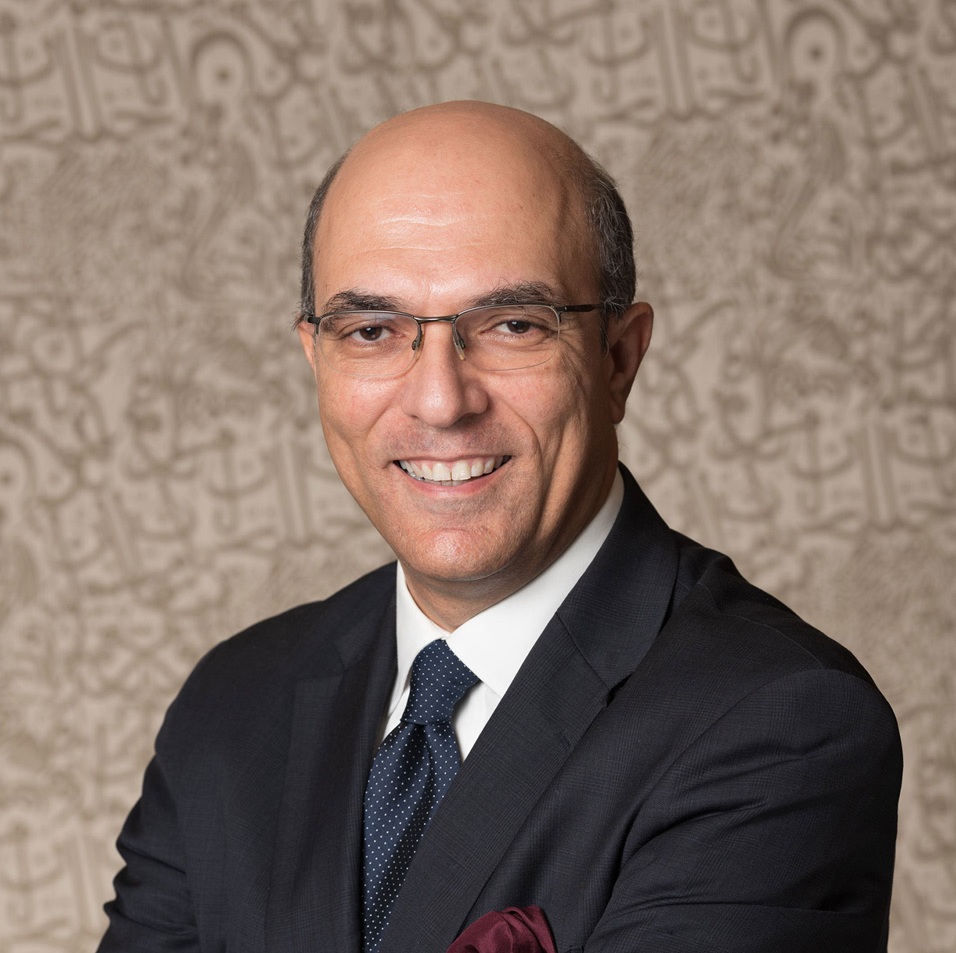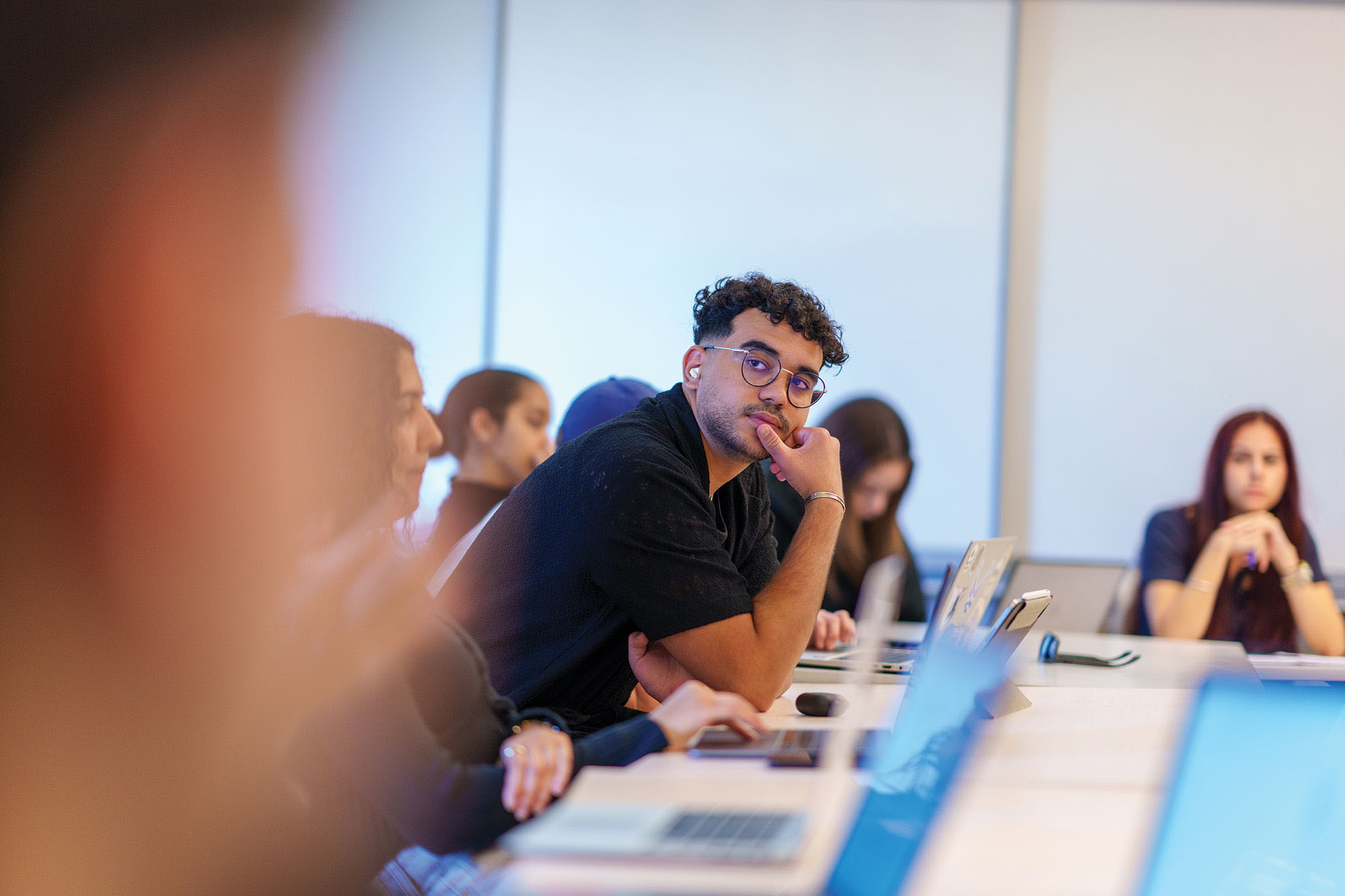Sherif Kamel ’88, ’90, ’13, dean of the Onsi Sawiris School of Business, shares his insights on the changing face of business education and where it’s headed.
What are some of the biggest shifts in business school education?
The focus of business schools almost two decades ago was to produce leaders who transform corporations, boosting profit. Revenue was the prime goal. Now, business schools not only look at shareholder interest but also stakeholder interest — in other words, pressing societal concerns, such as sustainability, climate change, ethics, diversity, inclusion and governance. This represents a complete shift in business education around the world, and every school — from Africa to North America and around the world— is looking at how to consistently modify the curriculum to be timely and relevant. Shareholders are still key, but it’s all part of a bigger communal interest, now dubbed as social impact. This reflects the new role of business schools as a convener: a connector of stakeholders and an initiator of conversations around both global and local issues.
Now, business schools not only look at shareholder interest but also stakeholder interest — in other words, pressing societal concerns, such as sustainability, climate change, ethics, diversity, inclusion and governance.
What challenges do business schools face in keeping their programs relevant?
The main challenge is working effectively within the market matrix. Some 40 years ago, business schools were looking at verticals, mainly disciplines that encompass marketing, finance, accounting, management, IT, strategy and HR. Twenty years later, they started examining horizontals, such as digital transformation, sustainability, data science, innovation, governance and others, and how they intersect with and complement the management verticals. But now, even this matrix, with the intersection between the verticals and horizontals, is not enough. We need to examine the implications on a variety of areas, including business, trade, services, industry, globalization and talent transfer. The difficulty lies in developing an adaptable curriculum that remains valid and relevant in this ever-changing landscape.
The difficulty lies in developing an adaptable curriculum that remains valid and relevant in this ever-changing landscape.
Do you see AI as a friend or foe?
AI has been around for much longer than many people realize, from Winston Churchill’s 1943 underground Cabinet War Rooms that housed the British government’s command center during World War II to human-computer interaction and expert systems in the 1980s to AI as we know it today. It has been gradually affecting our lives and is here to stay. In fact, we’re still scratching the surface. In education, AI affects not just what and how we study but also the facilities and resources available, enhancing productivity and efficiency — and it’s going to mature more and more. These are all positives, of course, but the downside is that AI raises concerns around issues such as ethics, bias, intellectual property rights, accuracy and trustworthiness. The key is learning to use it responsibly. In business education, AI is preparing students to lead in a fast-paced, tech-driven world. AI will not replace humans, but students who are better trained, educated, exposed and adapted will replace those who lack these fundamental skills. I like to think of it as augmented human intelligence backed by advanced technological innovations. It is not artificial.
Why would a business student choose to study business in Egypt instead of the United States or Europe?
Internationalization is not just confined to students traveling and studying abroad; it is an ecosystem. What we do here at AUC — similar to many business schools worldwide — is create cross-cultural exposure for students through international faculty, transnational case studies, incoming international students, global competitions and joint capstone projects in collaboration with other universities. For instance, our Doing Business in the Middle East program, now in its 16th year, gives AUC students the opportunity to interact firsthand with their peers from prominent institutions around the world, including the University of Chicago, Harvard University, Princeton University, the University of Pennsylvania, Manchester Metropolitan University, China Europe International Business School and McMaster University. Students from both sides exchange perspectives on current business issues in the region through academic classes by our faculty experts, visits to industries and NGOs, as well as meetings with business executives, entrepreneurs, alumni and government officials. AUC students, in turn, also visit business schools in other countries and benefit from the same global experience.
What we do here at AUC — similar to many business schools worldwide — is create cross-cultural exposure for students through international faculty, transnational case studies, incoming international students, global competitions and joint capstone projects in collaboration with other universities.
How do you see business education evolving in the next decade?
The future of business education will highly depend on the intersection of people, technology and data. Just as open working spaces are becoming prevalent, there will be open learning spaces. Less time will be spent in the classroom, and more time will be spent off campus in companies, factories, as well as civil society and community development organizations. Business schools and higher education at large are going to be completely different. The knowledge is there online, so what can faculty uniquely offer that students don’t already have access to? It’s the critical thinking approach that they bring to the classroom. Faculty will not deliver content but will instigate conversations to come up with solutions, and this will be enhanced through hands-on programs such as Cooperative Education (Co-Op), internships and experiential learning opportunities. This approach — teaching students how to think, not what to think — develops leaders who are innovative, adaptable and creative problem solvers.
This approach — teaching students how to think, not what to think — develops leaders who are innovative, adaptable and creative problem solvers.
During Sherif Kamel’s tenure as dean, the Onsi Sawiris School of Business earned its triple crown accreditation, placing it among the top 1% of business schools worldwide; maintained its Financial Times global ranking in executive education; and expanded its international footprint through new partnerships and affiliations. Kamel has championed innovation in teaching and learning, launching the region’s first Co-Op Program as well as integrating sustainability and global challenges into the curriculum. He is the immediate past chair of the board of directors of the Association to Advance Collegiate Schools of Business and serves on the board of directors of the Central Bank of Egypt. A renowned scholar, Kamel published his debut book, Leading Change in Challenging Times: Lessons of Disruption and Innovation in Egypt, a collection of his reflections and observations on the school’s institutional history as well as business leadership advice.

“AI will not replace humans, but students who are better trained, educated, exposed and adapted will replace those who lack these fundamental skills.”


